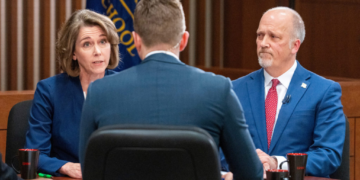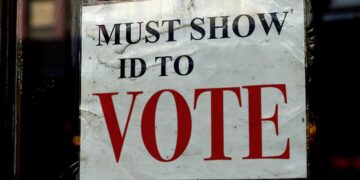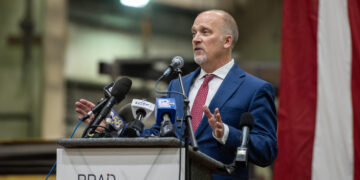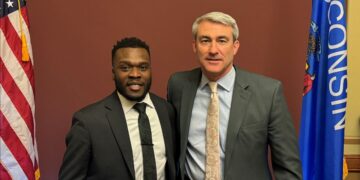In a contentious move, Republicans in the Wisconsin state Senate announced plans to override up to 36 of Governor Evers’ vetoes, including a crucial bill addressing PFAS pollution. This maneuver, deemed by Democrats as election-year theatrics, coincides with Evers’ countersuit against the GOP-led Legislature over the allocation of $50 million for a new literacy initiative.
The political brinkmanship intensifies as both parties vie for leverage ahead of the November elections. With Democrats eyeing gains in the Legislature, the standoff over PFAS funding and other issues becomes a focal point, amplified by the unveiling of new legislative boundaries.
While Republicans emphasize the urgency of addressing PFAS contamination and rural healthcare needs, Democrats decry the veto override attempts as mere grandstanding. Joe Oslund, spokesperson for the Wisconsin Democratic Party, criticizes the GOP’s reluctance to release allocated funds, labeling their actions as obstructionist.
Republican state Senator Howard Marklein, co-chair of the budget committee, defends the veto overrides as a means to expedite vital spending and policy implementation. However, with the Senate lacking the necessary votes for successful overrides, the outcome remains uncertain.
The impasse over PFAS funding underscores a prolonged disagreement between Evers and lawmakers on combating groundwater pollution. Despite shared acknowledgment of the issue’s significance, partisan gridlock persists, hindering substantive action.
Evers’ recent attempt to convene the budget committee to release allocated funds was met with Republican resistance, escalating tensions. In response, Republicans pivot to overriding Evers’ veto on PFAS spending, while also addressing other legislative priorities such as election audits and teacher apprenticeship programs.
Although the veto override attempts are likely to falter, Republicans aim to capitalize on the symbolic gesture for electoral gain. Simultaneously, Evers pursues legal recourse, filing a counterclaim in response to the GOP’s lawsuit challenging his partial vetoes related to literacy program funding.
Amidst the political theater, Evers condemns the Legislature’s inaction, labeling it “unconscionable.” With critical issues hanging in the balance, the legal and legislative maneuvers underscore the deep-seated divisions shaping Wisconsin’s political landscape.



























